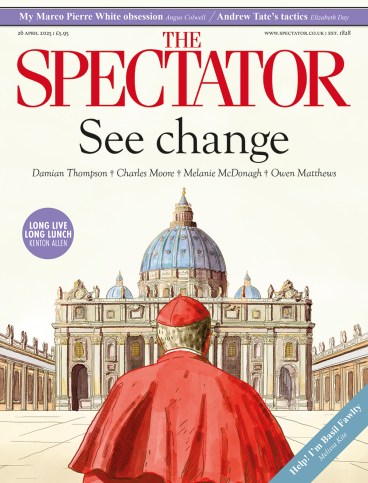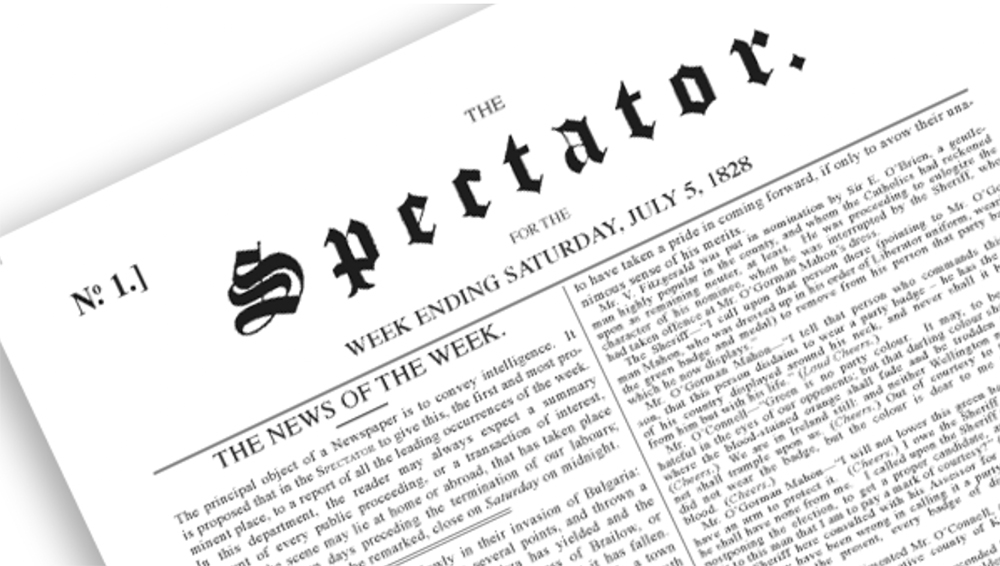
Matthew Parris has narrated this article for you to listen to.
Seldom has a collective term been less appropriate: ‘the Channel Islands’ – as though these were in any sense (other than the geographical) a place. Entertained in my English mind had been a scatter of similar, pretty but perhaps over-manicured little islands stuck in the mid-Channel between Great Britain and France but sunnier, and where tax-avoiders are the indigenous population.
Wrong, wrong, wrong. For family reasons I’ve just spent some time on Jersey, Guernsey and Alderney, sadly missing Sark and Herm. My island-hopping trip, though short, showed me how wide of the mark these assumptions are. Guernsey is by no means manicured and is in places pleasingly unkempt, while Alderney is quite dishevelled. Mid-Channel? No – they all but hug the French mainland, hours by sea from the English coast.
Whatever Guernsey thinks of Jersey (and vice versa), we English met only pleasantness
Jersey alone is sunnier than Dorset; wealthy tax-avoiders exist but you hardly see them, and everything and everyone feels local. Not only is there absolutely no collective sense of Channel Island identity, but at least two of them – Jersey and Guernsey – actively dislike each other.
I’m fond of Jersey, loved Guernsey (my first visit) and love Alderney best of all; but if they weren’t all dependencies of the British Crown (relics of the Normandy we once claimed) then they might as well be hundreds of miles from each other. Indeed, to travel between them it’s sometimes easiest to fly via Southampton and, as I write, the only inter-island ferry is between Guernsey and Alderney. We took it, arriving drenched, storm-tossed and giddy. Air links are better, but mist, fog and a deeply unhurried attitude mean that when you are on a Channel Island, make no assumptions about when you’ll be able to get off it.
Jersey comes closest to our English preconceptions, reminding me of those swaths of Surrey that are not quite country yet not quite suburban. Most roads are high-hedged narrow lanes, and though you’re never far from greenery, you’re never far either from the next neat, freshly painted bungalow or the drive to yet another discreetly grand house and well-clipped garden. One keeps longing for a break into open countryside and hoping it’s just around the next corner – but it never quite is.
The beaches are gorgeous but the sea cold, and tourism has nosedived now that Britons might as well fly (more cheaply) to sunny Spain. There is wealth, yes, but without vulgarity. As for the capital, St Helier, I still don’t know it, having never found anywhere to park. Jersey people seem to spend most of their time driving round looking for a parking space, and I can’t imagine a better case for banning massive SUVs and the internal combustion engine. Go electric, Jersey people! Range anxiety? On an island five miles long and nine miles wide?
Locals are invariably civil but rarely effusive, and, though many place-names and surnames are French, their pronunciation murders them. Prevailing accents are middle- to lower-middle-class southern English. The politics seems ferociously parochial andrather low-calibre. And – interesting, this, and shared by the other islands – most labouring, menial or service work is done by people with darker skins, or a large cohort of Portuguese. On all the islands, the tourists are now mostly French, links to the mainland being quick and easy. There’s nothing Gallic at all about the ambience, but maybe that’s part of the appeal to trippers from France.
Guernsey proved a revelation. There being no ferry (I hear Jersey and Guernsey can’t agree on an operator), we flew to the rather charming capital, St Peter Port, with its fine 18th-century townhouses. It totters in cobbles and granite stairways down a steep hillside down to its busy commercial waterfront. ‘They’re hostile there,’ a Jerseyman friend had told me. ‘I went once to agree a contract, but when my surname announced me as a Jerseyman, my Guernsey counterpart withdrew the hand I was about to shake, and the deal died.’
Whatever Guernsey thinks of Jersey (and vice versa), we English met only pleasantness. The place was more straggling, less densely packed. There were real farms and (after super-tidy Jersey) a certain blessed messiness: the occasional sign of actual dereliction a relief. Tiny buses come scooting round every corner, and in our ten-mile walk along lovely beaches, over dunes of seagrass and down winding country lanes, we were never far from a regular bus route.
And it was here on Guernsey that the most striking similarity between these dissimilar islands hit home: the historic belief that somebody was about to invade them, a history written in concrete – bunkers, forts, ramparts, castles, towers and tunnels, all facing the sea. Untold quantities of cement, innumerable granite quarries and the bones of thousands of the occupying Nazis’ half-starved prisoners of war speak of a misapprehension (surely) that started with the Victorians but which obsessed Hitler too.
Nineteenth-century Britain thought (post Napoleon) that France might attack again, using the Channel Islands. Twentieth–century Germany thought Britain might try to occupy Vichy France via the archipelago. It’s unclear to me what useful military purpose this stepping stone could serve, but gorse-choked gun-emplacements, rusting cannon, dugouts half-masked by wild garlic and hawthorn blossom quivering in the Atlantic breeze: all bear silent witness to the colossal expense of a major bee in the strategists’ bonnets.
Alderney – our final stop and my favourite – is a graveyard to this paranoia. We passed more than a score of bunkers, forts and even a monumental concrete lighthouse-like lookout on our 11-mile walk right around the periphery of the island. But what a walk! This smallest of the three islands offers the wildest coastline: cliffs, beaches, gannet colonies on rocky islets, real nature, and proper farming too. The only town, Saint Anne, is sweet, and we loved the Victorian-then-German Fort Clonque (now converted by the Landmark Trust) where we stayed, its causeway awash at high tide. Alderney is not wealthy, nothing like Jersey, and perhaps struggles a bit, but we loved it.
Executive summary, then. Channel Islands. All different. Abandon preconceptions, equip smartphone with bird-identifying and plant-identifying apps, give yourself a week, walk miles, take binoculars, explore.








Comments